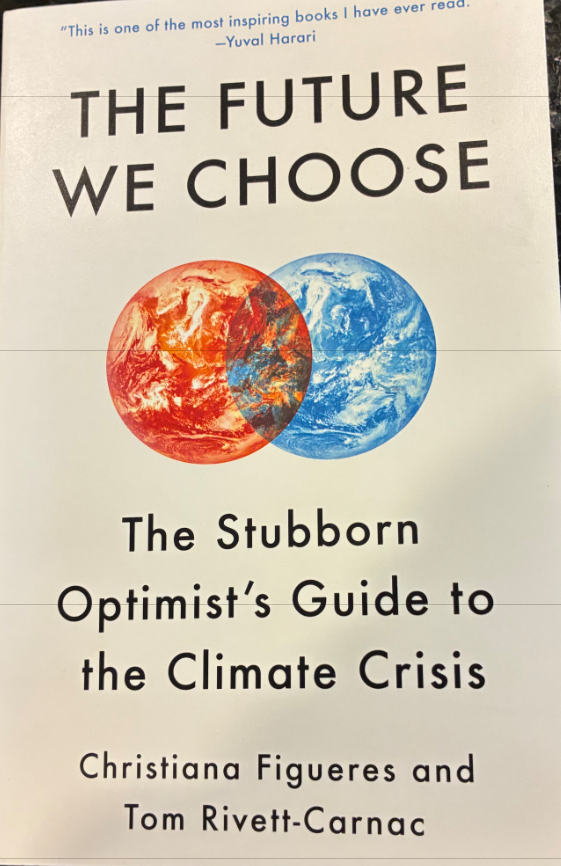Commentary
A Perspective on '2040'

Editor’s note: This is one in a continuing series of guest opinions about fostering environmental stewardship and leadership. The series is coordinated by ACES, the Alliance of Climate and Environmental Stewards.
If you are like me, you have a lot of friends that have either bought second homes in Florida or moved there permanently. Like many others, I like to go to Florida for at least a week or two every winter – just to warm up from our cold New England weather.
But little did I think of Florida as the front lines of our battle against climate change. Hurricane Ian changed that.
During Ian’s landfall, I sat snugly in a Firehouse Center theater seat, watching a movie, “2040,” that was hosted by the local group Storm Surge. It was a surreal experience.
While western Florida was getting battered by 150 mile-an-hour winds and 17-foot storm surge (in communities 5 to 10 feet above sea level), I sat cozy and dry, and kept comfortable by a climate control system that helps storms like Hurricane Ian form more frequently and become more deadly. I heard the air conditioner come on, fueled by fossil fuels. and then I started to feel guilty.
The movie comes on, a tribute to the producers, and the sponsors in that it’s not another gloom and doom, we’re screwed, “it’s too late” epitaph. “2040” is a story presented through the eyes of children – those young folks that will be adults in 20 years. It’s a different portrayal of climate change and what we can do about it.
“2040” was less about guilting us into action, and more about showing us that technology – and incentives – that can save us are ready for the planet. Sure, in my lifetime climate change and frequent extreme weather events have gone from a probability to a certainty.
As the movie explained, we have crossed the tipping point, and the conversation is no longer how do we reduce our carbon emissions, but now must include how we extract carbon from the atmosphere and remove the carbon that we have already emitted.
Our ability to do that might mean life or death for our species. Real solutions highlighted in the movie were things like “marine permaculture,” which includes seaweed farming that can provide food, fuel, and fertilizer while reducing carbon emissions, and in some cases removing carbon from the ecosystem.
My favorite was the eco awareness dashboard – a way that a community can watch the climate effects of what we do in real-time – on an online webpage, or a continuously updated billboard. This is what has allowed Oberlin, Ohio, to be proactive about many changes needed.
To view the Oberlin dashboard, click on this link: https://oberlin.environmentaldashboard.org/cwd
With the movie’s emphasis on technology and practices that are here today, I came out of the theater feeling hopeful. Hopeful this is a battle that can be won. Hopeful that our country realizes that we are all on the front lines – not just Florida, or Puerto Rico. Hopeful for my grandchildren.
Our turn in Newburyport to experience severe climate-change induced weather will come, I am sure – but “2040” left me with a sense of a path forward.
Thank you, Storm Surge, and the Firehouse for providing the space, for helping our community understand what’s at stake, and what a way forward is.
We now have an opportunity to have many individuals in our communities engage with and contribute to environmental stewardship types of organizations and municipal initiatives/projects to support collaboration and have a local positive impact.
Punta Gorda, Puerto Rico, Bangladesh – we’re in this together, worldwide. and we can do it.
This column was coordinated by ACES youth corps member Ana Satir. To share any comments or questions, send an email to acesnewburyport@gmail.com. To learn more about ACES and its 4 Initiatives, visit https://www.aces-alliance.org.
.svg)



